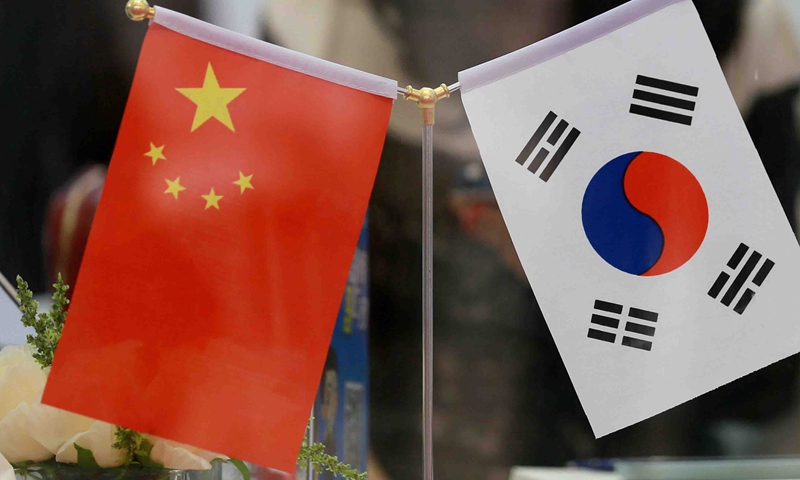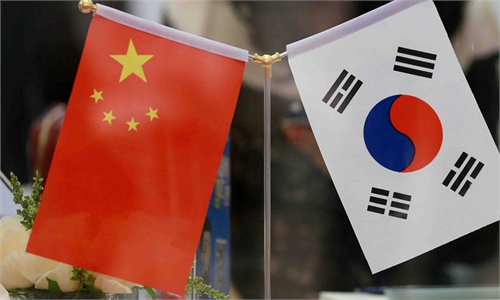
File photo:CGTN
Given the increasing complementarities of the Chinese and South Korean economies and the rebound potential of the Chinese market, the investment by South Korean enterprises in China in the post-COVID-19 period will increase and may even exceed the previous level, an industry representative said.
At a promotion fair for South Korea commodities that took place in Beijing on Thursday, up to 30 South Korean companies presented their products to Chinese clients via booths and video links. It was one of a series of recent activities in which South Korean businesses have sought closer connectivity with Chinese partners in the post-pandemic era.
The main purpose of the fair was to introduce South Korean consumer goods to Chinese buyers and build a platform for economic and trade interactions between South Korean and Chinese enterprises, according to the organizers.
Although Korean exporters could not join the event due to the pandemic, the commodities presented at the scene still drew many potential Chinese clients.
A businessperson surnamed Wang from a private trading company told the Global Times that they used to promote several household products from South Korea and he came to look for new business opportunities.
"Goods from South Korea are normally very popular among Chinese consumers for their cool functions and design based on similar culture and values, and with the huge Chinese market capacity these products can find buyers, especially when the demand rebounds," said Huang.
"Culturally and geographically, South Korea and China are closely bonded with each other and we both are highly complementary economically, so we can help each other and pull together in hard times," Park Min Young, chief representative of the Korea International Trade Association Beijing office, one of the organizers of the event, told the Global Times on Thursday.
The event came shortly after a visit to South Korea by Wang Yi, China's state councilor and foreign minister, during which he said that China will push forward the docking of the Belt and Road Initiative with South Korea's development strategies as well as efforts to reach an agreement on the second phase of the China-South Korea free trade agreement, media reports said.
"After Wang's visit, South Korean businesses are all eager to take this opportunity to elevate bilateral economic and trade strategic relations to a higher level," said Park, adding that investment by South Korean companies in China will increase greatly in the post-COVID-19 period, and may even exceed the level of previous years.
Despite the pandemic, Chinese and South Korean economic and trade ties have come even closer.
From January to October, China's share in South Korea's foreign trade increased to 24.5 percent from last year's 23 percent, showcasing unprecedented exchanges and cooperation between the two countries, according to the Korea International Trade Association Beijing office on Thursday.

